Keep your precious pans scratch-free by cooking with the best non-stick cooking utensils.
Our editors and experts handpick every product we feature. We may earn a commission from your purchases.Learn more.
Keep your precious pans scratch-free by cooking with the best non-stick cooking utensils.
Our editors and experts handpick every product we feature. We may earn a commission from your purchases.Learn more.
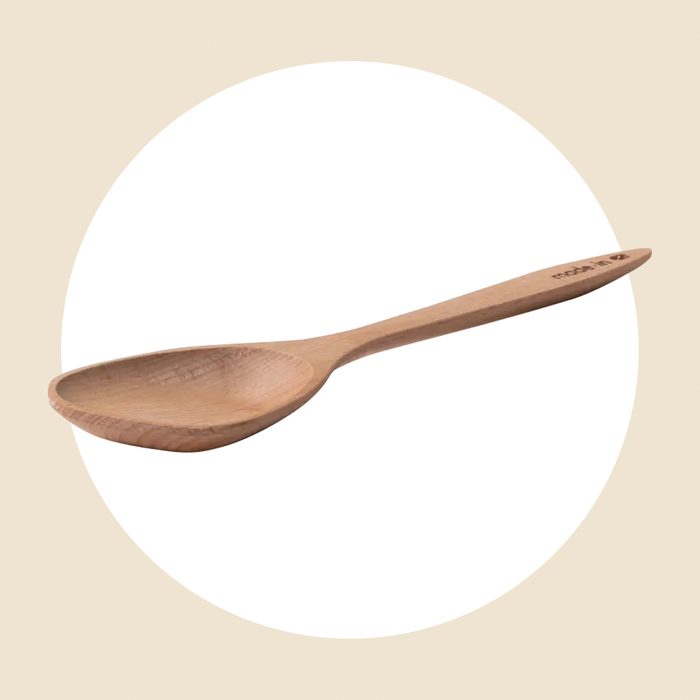 via merchant
via merchant
One of the must-have non-stick cooking utensils is a large wooden spoon. It stirs, scrapes and has been an indispensable tool long before non-stick cookware. Wood, which is naturally soft and won’t damage pans, is ideal material for kitchen utensils for its ability to withstand extreme heat. Made In’s outstandingly crafted version will serve you for years to come.
If you prefer acquiring all your non-stick cooking utensils at once rather than gradually collecting individual pieces, this 14-piece set is a reliable option. It includes essential daily utensils like tongs and a flexible silicone spatula, as well as occasional tools like a slotted turner and a pasta-serving spoon.
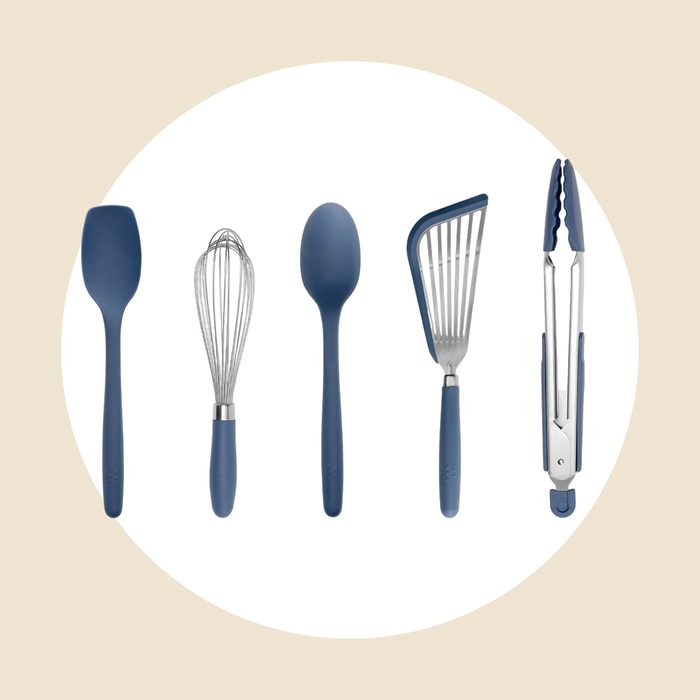 via merchant
via merchant
In small kitchens where space is limited, owning a large set of non-stick cooking utensils may not be feasible. Thankfully, Misen offers a solution with their convenient set of five key pieces that you’ll find yourself using repeatedly. One notable feature is the silicone edge on the flexible fish spatula, making it an ideal tool for flipping foods without causing any damage.
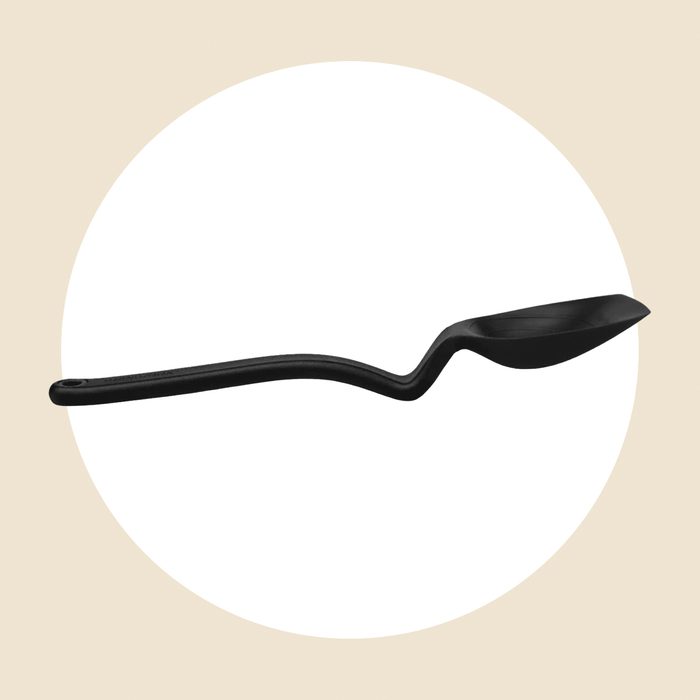 via merchant
via merchant
Dreamfarm impresses us with their innovative hybrid tools like the Spina (a strainer and salad spinner) and exceptional pepper grinders. The Supoon is another winner. It features flexible squeegee sides and a flat tip, which ensures efficient scraping of delicious brown bits from pans without damaging the non-stick coating. Its deep scoop features convenient measurement lines for easy recipe adherence, too.
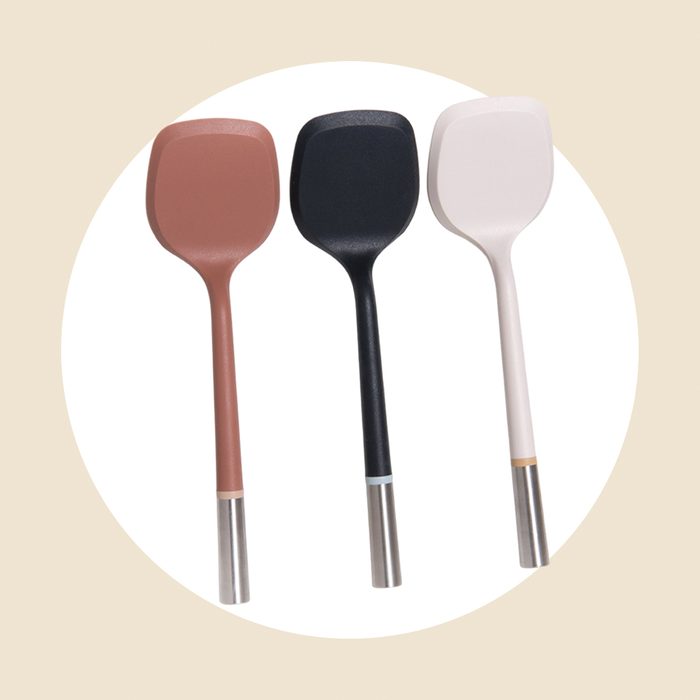 via merchant
via merchant
While the initial price tag of this kitchen spatula may seem high, a closer look at its extensive list of five-star reviews and chef-tested accolades reveals why it is truly worth the investment. Material’s soft-edge turner is crafted from BPA-free silicone with a reinforced nylon core, providing stability beneath its soft and gentle surface.
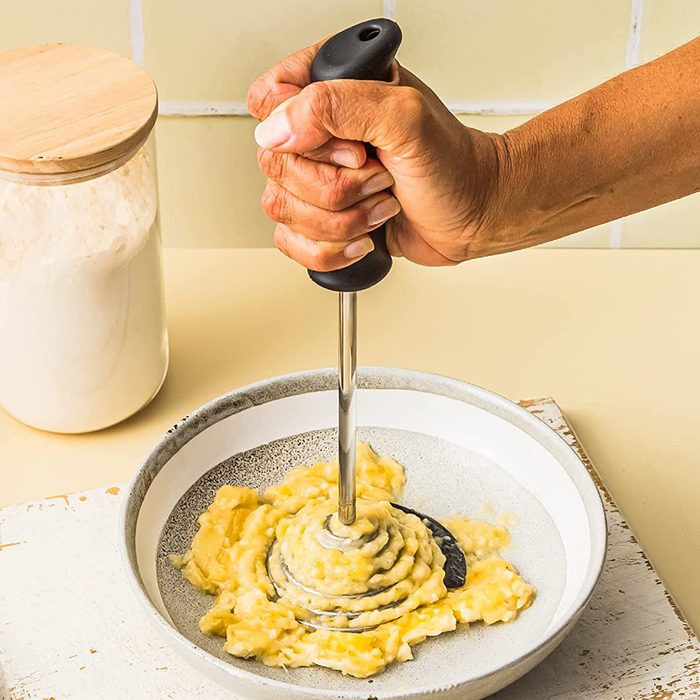 via merchant
via merchant
Dreamfarm presents another helpful cooking product with this innovative potato masher. Designed to flatten spuds to pancake-like perfection, it effortlessly creates velvety mashed potatoes in a matter of minutes. The coiled design ensures ease of use with minimal physical exertion, eliminating any discomfort or inconvenience associated with mashing foods.
Conventional whisks with wire tines pose a risk of scratching the coating of non-stick pans, rendering tasks like emulsifying sauces or vigorously whisking omelets challenging. That’s precisely why owning a silicone version becomes essential. And when it comes to finding the perfect one, it’s hard to beat the performance of this Oxo silicone balloon whisk.
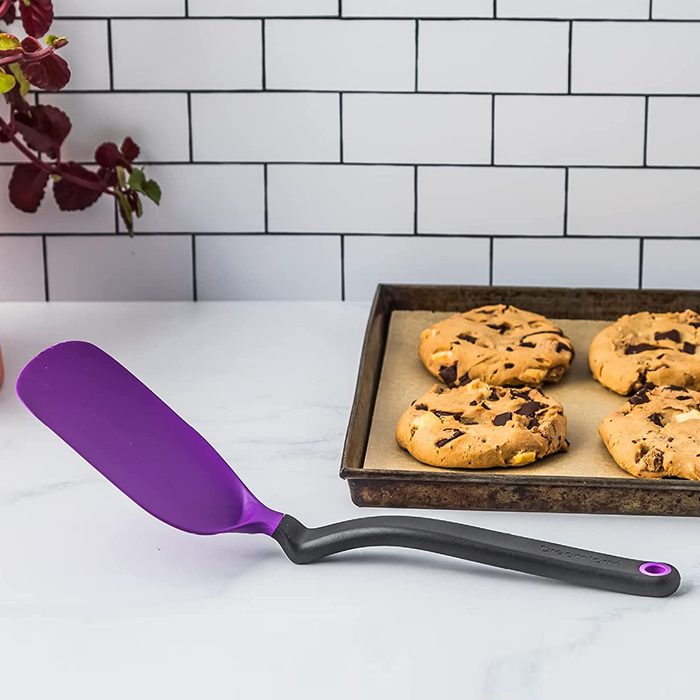 via merchant
via merchant
The Chopula is a light, flexible turning spatula that flips even delicate foods like fish or pancakes without damaging them. Turn it on its side, though, and you’ve got a non-stick cooking tool that’s rigid and sturdy enough to break up foods as they cook, such as ground beef or frozen vegetables.
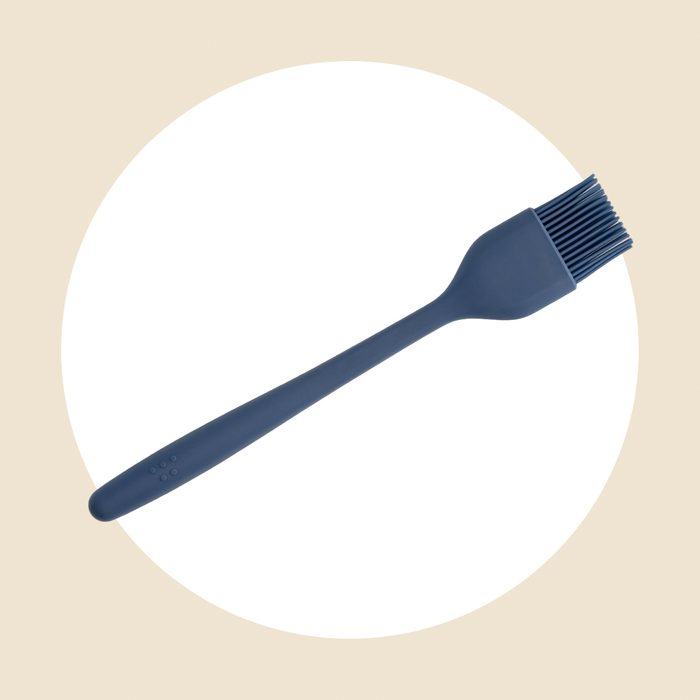 via merchant
via merchant
The Misen pastry brush stands as one of the top non-stick cooking utensils for basting and glazing foods. Its handle incorporates a sturdy nylon core wrapped in platinum-grade silicone, ensuring durability. The brush’s soft and resilient silicone bristles are easy to clean, dishwasher-safe and capable of withstanding temperatures up to 450 degrees Fahrenheit.
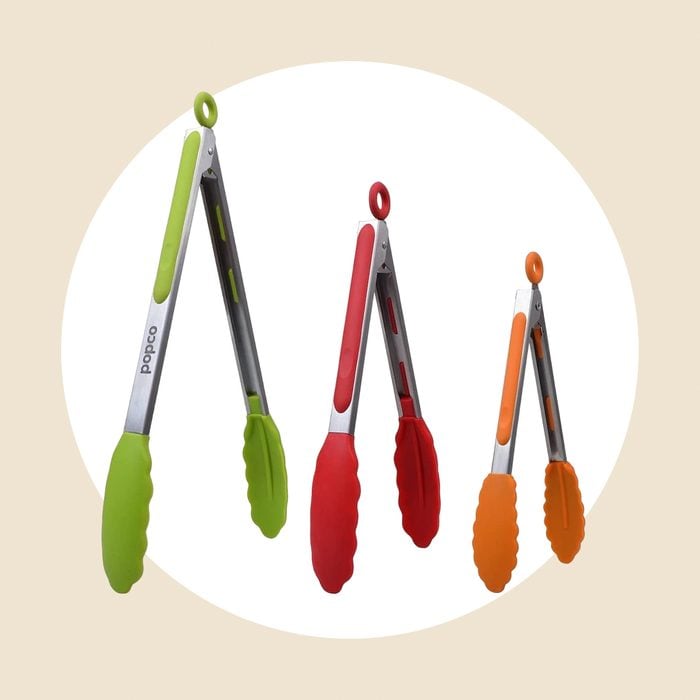 via merchant
via merchant
Tongs serve as an extension of your hands during cooking, requiring effortless operation. This set offers three tongs in varying lengths to always get a proper grip on your food, whether you’re cooking in a pan, on the grill or in the oven. The silicone-covered tips prevent these non-stick cooking utensils from scratching your pans. Plus, a user-friendly lock at the end keeps them securely closed when not in use.